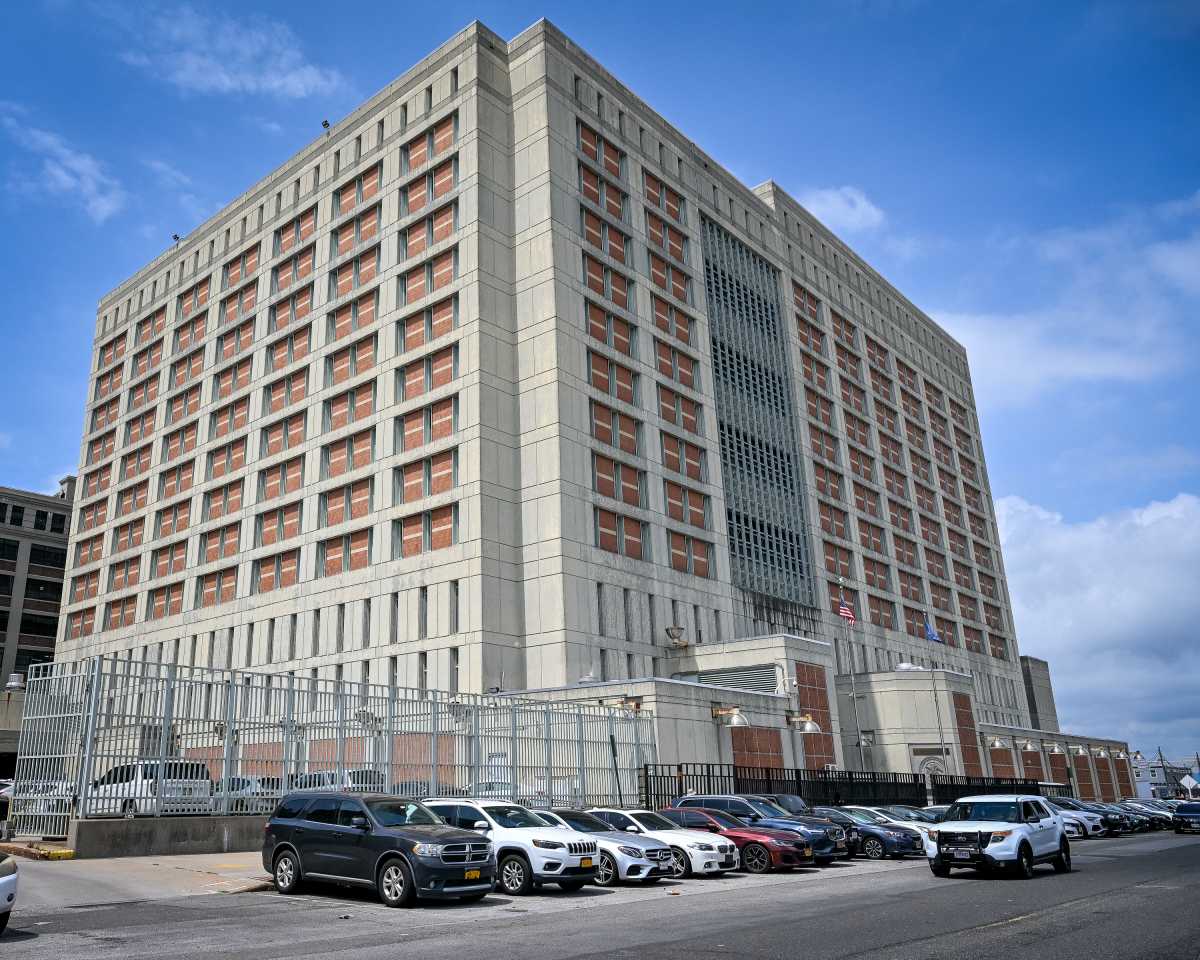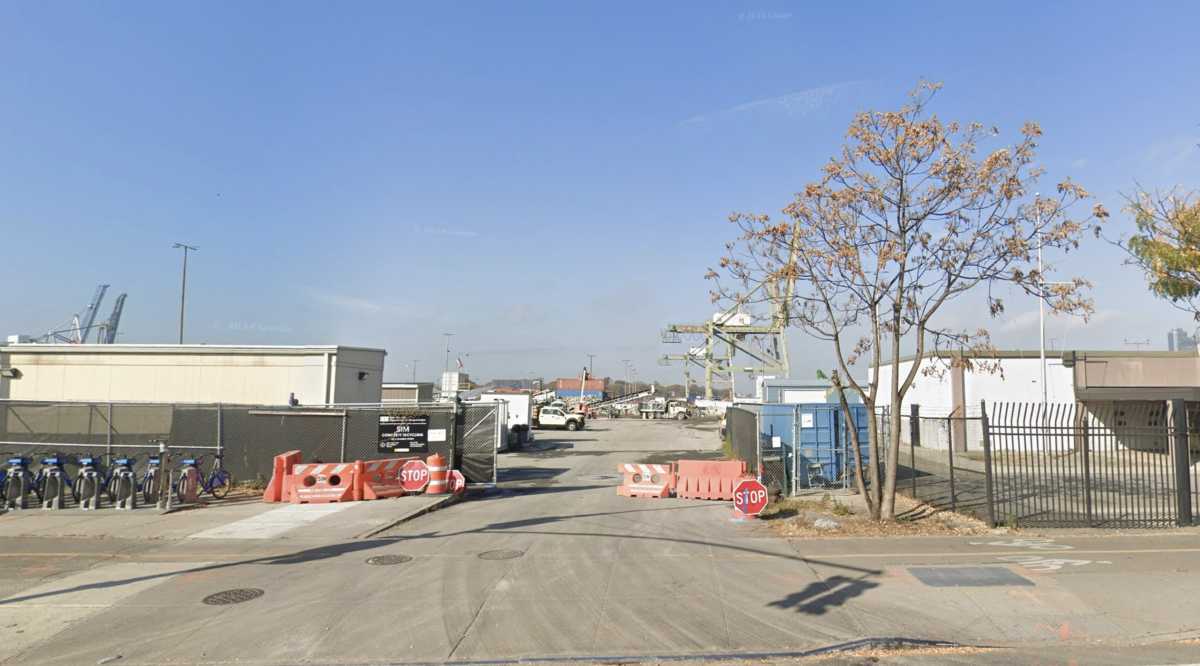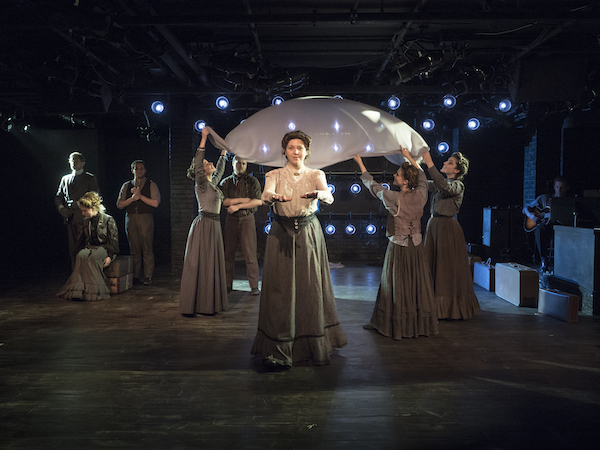
BY TRAV S.D. | Axis Company remains one of the few theatre companies in New York that always manages to keep me guessing. This is all the more remarkable given the number of their productions (probably a dozen) I have caught over the past decade and a half — ranging from classics (Buchner’s “Woyzeck”), to children’s fairy tales (“Seven in One Blow”), to 19th century melodrama (“A Glance at New York”), to modern grunge nihilism (Sarah Kane’s “Crave”), to storytelling (“East 10th Street,” starring the incomparable Edgar Oliver). All wildly divergent theatre forms, yet all bearing the quirky and unmistakable stamp of Axis founder and Artistic Director Randy Sharp.
Their current production (“Evening – 1910”) happens to be a musical. One is tempted to call it a “rock musical” or “rock opera,” not just because the pop-inflected score was co-written by Paul Carbonara, a former guitarist and musical director for Blondie, but because, much like The Who’s “Tommy,” it is highly impressionistic, consisting of many character songs and expository production numbers, as opposed to active, plot-driving dramatic tunes. But Carbonara’s and Sharp’s gorgeous, melodic songs and the cast’s impressive, “legit” harmonizing seem the furthest thing from rock. And there is a plot — an eloquent, thought-provoking one.
“Evening – 1910” is an elaboration upon an earlier, shorter work by the team entitled “Solitary Light,” which had its premiere in the 2014 Theatre: Village Festival. The latter show was more focused on the 1911 Triangle Shirtwaist Factory fire, one of New York City’s worst disasters. The current work alludes to that event, foreshadows it, warns of it — but it centers more on a love triangle, which speaks equally to socioeconomic disparities in America and the tough choices people at the bottom are often forced to make.
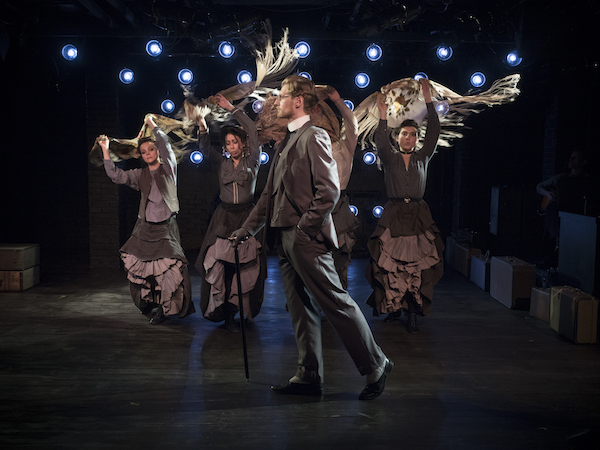
Happily for this reviewer, vaudeville and early cinema lay at the heart of the tale. Henry (Michael Sheehy) crosses the Atlantic with a chorus of fellow immigrants bound for Ellis Island. His principal asset is his movie camera and his skill in using it. This draws him into the world of a Bowery variety theatre, where he finds himself caught between two women: a vaudeville chorus girl (Shira Averbuch) and the wealthy sister (Emily Kratter) of the theatre’s owner (James Scheider), who is just branching out into the new kinetoscope business. We won’t spoil the suspense for you by revealing the choice he makes, but we will say that we found the chorus girl’s song (“Here He Comes”) to be a touching high point in a show that has many.
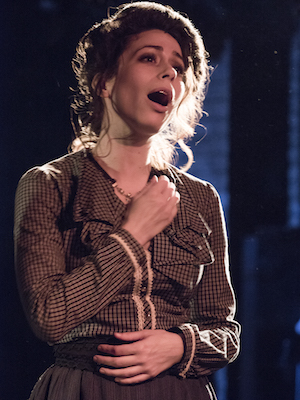
Like much of the Axis Company’s work, “Evening – 1910” is built on tension between the aesthetics of history and more modern, experimental techniques. On the one hand, we get wonderful old favorites like “Sidewalks of New York” and “A Bird in a Gilded Cage.” On the other hand, much of it comes to us through techniques of Brechtian distanciation.
As we have come to expect from writer-director Sharp, many of the events are not spelled out in the lyrics themselves, rather in the space around them. Many of the more concrete details of time and place and action are rooted in the stagecraft: Karl Ruckdeschel’s period-accurate costumes, Steve Fontaine’s evocative and multi-layered sound design, and the machine-like complexity of the actors in motion as guided by Sharp and choreographer Lynn Mancinelli.
The entire cast (which also includes Mancinelli, Justin McEllroy, Stephanie Lynne Mason, and Katie Rose Summerfield) frequently function as a chorus to the action. Chet Yarborough’s sets are minimalistic but effective, enhanced as they are by David Zeffren’s warm but contrasty lighting.
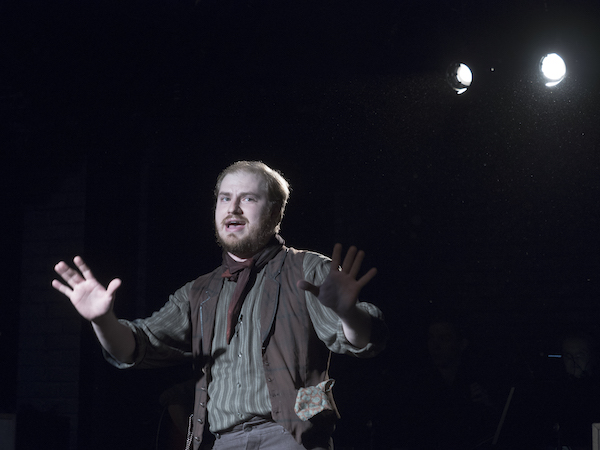
As much as I loved the music, as much as I loved the singing, and as much as I loved the story, my very favorite moment in the production belonged to Zeffren. It’s the last moment in the show, a moment the entire proceedings had been heading toward. As in all Axis productions, one had spent the entire experience wondering, “Where can this be going?” And then Zeffren and Sharp give us a moment that not only explains it all, but ties the meaning of the show to present-day realities in a profound and chilling way.
Very few directors have the power or the skill to make me rethink theatre in this way, to fake me out and surprise me and fill me with wonder using techniques that are foreign to me or that I might, in the abstract, be skeptical of. Randy Sharp does it to me every time. If you ever feel caught in a rut, or forget why you ever became excited about theatre in the first place, go see something — anything — at Axis Company.
May 12, 19, 25 & 26 at 7pm; May 13, 14, 20, 21, 27 & 28 at 8pm. At Axis Theatre (One Sheridan Square, btw. W. Fourth St. & Washington Pl.). For tickets ($40, $30 for students & seniors), call 212-807-9300 or visit axiscompany.org.















